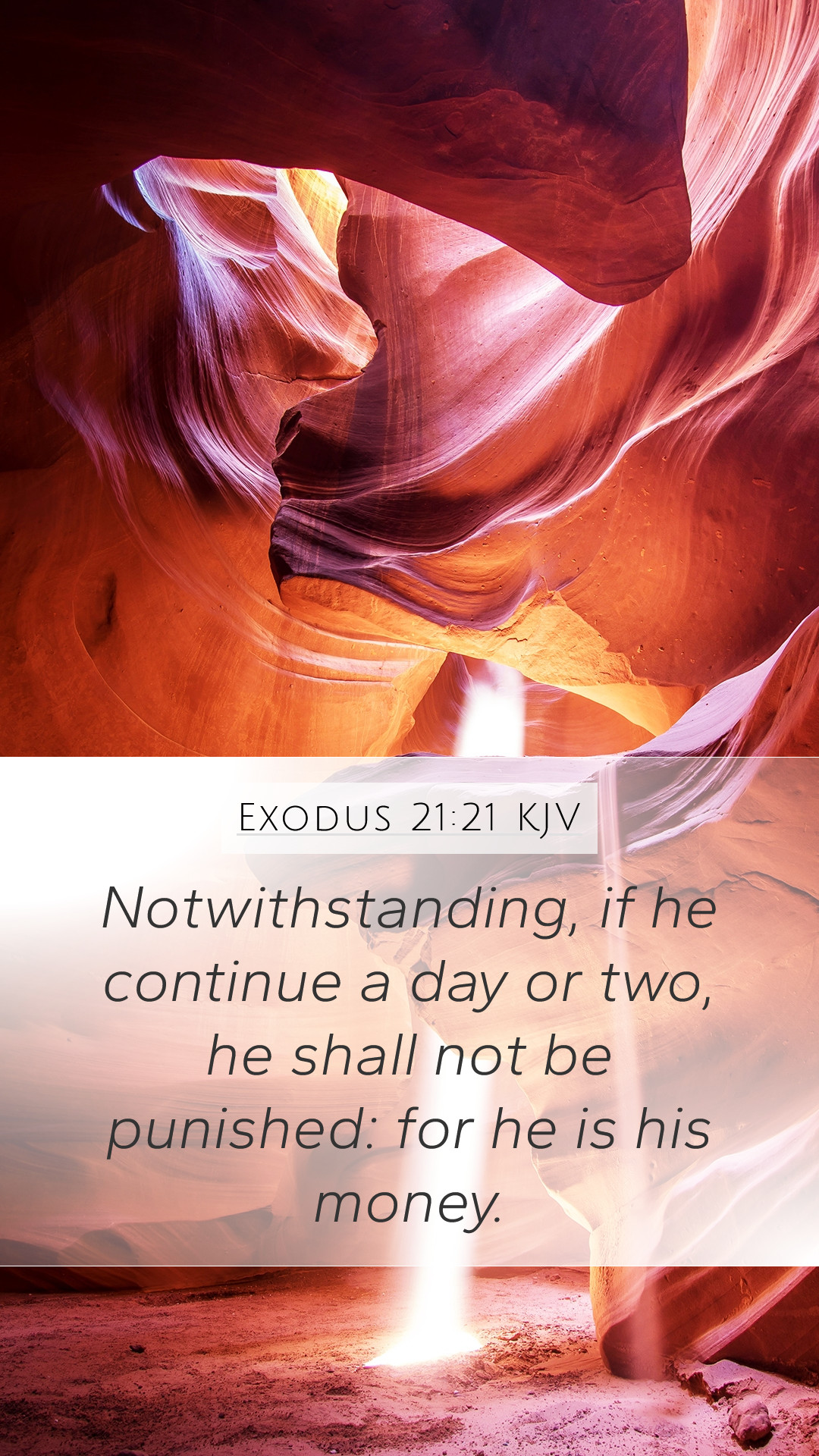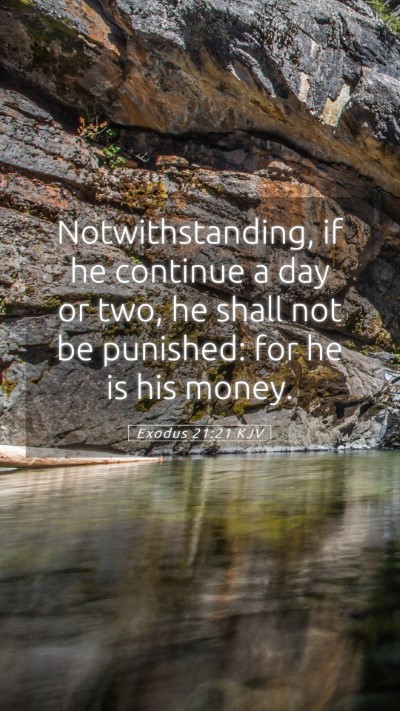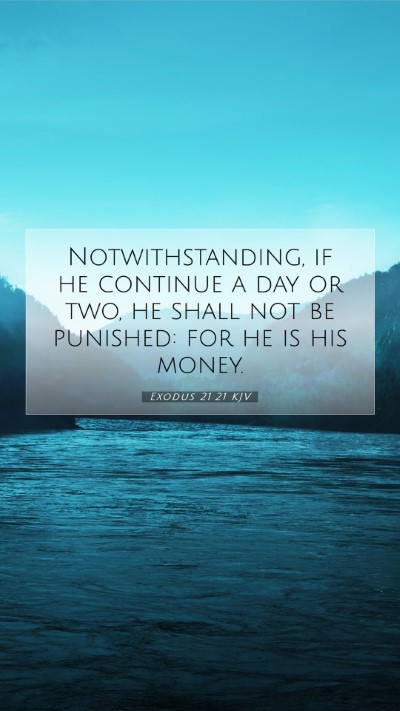Bible Verse Commentary: Exodus 21:21
Verse: Exodus 21:21 states, "Notwithstanding, if he continue a day or two, he shall not be punished: for he is his money." This verse is part of a larger discussion regarding laws about servants and their treatment within the context of Israelite society.
General Understanding: This verse addresses the consequences of a master’s actions when a servant is injured or incapacitated. The law here indicates that if a servant is injured but recovers after a couple of days, the master is not liable for punishment in monetary terms. The underlying concept emphasizes the economic relationships and responsibilities that existed within ancient Israel.
Interpretation and Analysis
-
Matthew Henry's Commentary:
Matthew Henry notes that this law aims to strike a balance between justice and mercy. While the master holds a responsibility towards his servant, the injury is not regarded as extreme if the servant survives after a short duration. Thus, the law acts to protect servants while also considering the master’s economic impact.
-
Albert Barnes' Commentary:
Albert Barnes emphasizes the financial implications of this verse. He suggests that a servant's life is valued significantly, but the historical context indicates that the situation must be viewed pragmatically. This law reflects the socio-economic realities of that time, where servants were valuable assets to their masters.
-
Adam Clarke's Commentary:
Adam Clarke provides insight into the humane treatment of servants and the need for a measure of compassion in circumstances of injury. He asserts that the spirit of the law goes beyond mere economic concerns and calls for a moral obligation to care for those who serve. The passage illustrates the balance of justice versus economic hardship.
Historical Context
This verse is set within the context of the ancient Near Eastern laws that governed social relationships and economic transactions. In the Israelites' society, slaves and servants were common, and the laws provided guidelines to ensure fairness and order. Understanding this legal framework is critical for grasping the deeper implications of the text.
Theological Implications
The theological implications of Exodus 21:21 can relate to the larger theme of justice and mercy found throughout Scripture. The treatment of servants can be viewed as a reflection of God's character and His expectations for just behavior among humans. Servants, being integral to the economy and society, should be treated with dignity and responsibility by their masters.
Practical Applications
In modern Bible study, this verse invites reflections on how we treat those who serve us in various ways today. Consider the principles of justice, care, and the acknowledgment of worth in all human relationships. The application of these scriptures can extend to broader discussions on ethics in business and personal relationships.
Related Bible Cross References
- Exodus 21:20: Discusses the consequences of killing a servant.
- Leviticus 25:39-41: Addresses the treatment of hired workers and fellow Israelites.
- Deuteronomy 15:12-15: Encourages fair treatment and eventual release of Hebrew slaves.
Conclusion
Exodus 21:21 is more than a legal phrase; it embodies much of the moral and social teachings of the Bible. Through understanding this verse, one can gain deeper insight into the historical context, theological significance, and contemporary applications of justice and relationship in society. For those seeking Bible verse meanings and interpretations, this verse serves as a rich source for study and reflection.
Keywords: Bible verse meanings, Bible verse interpretations, Bible verse understanding, Bible verse explanations, Bible verse commentary, Scripture analysis, Biblical exegesis, Bible study insights.


